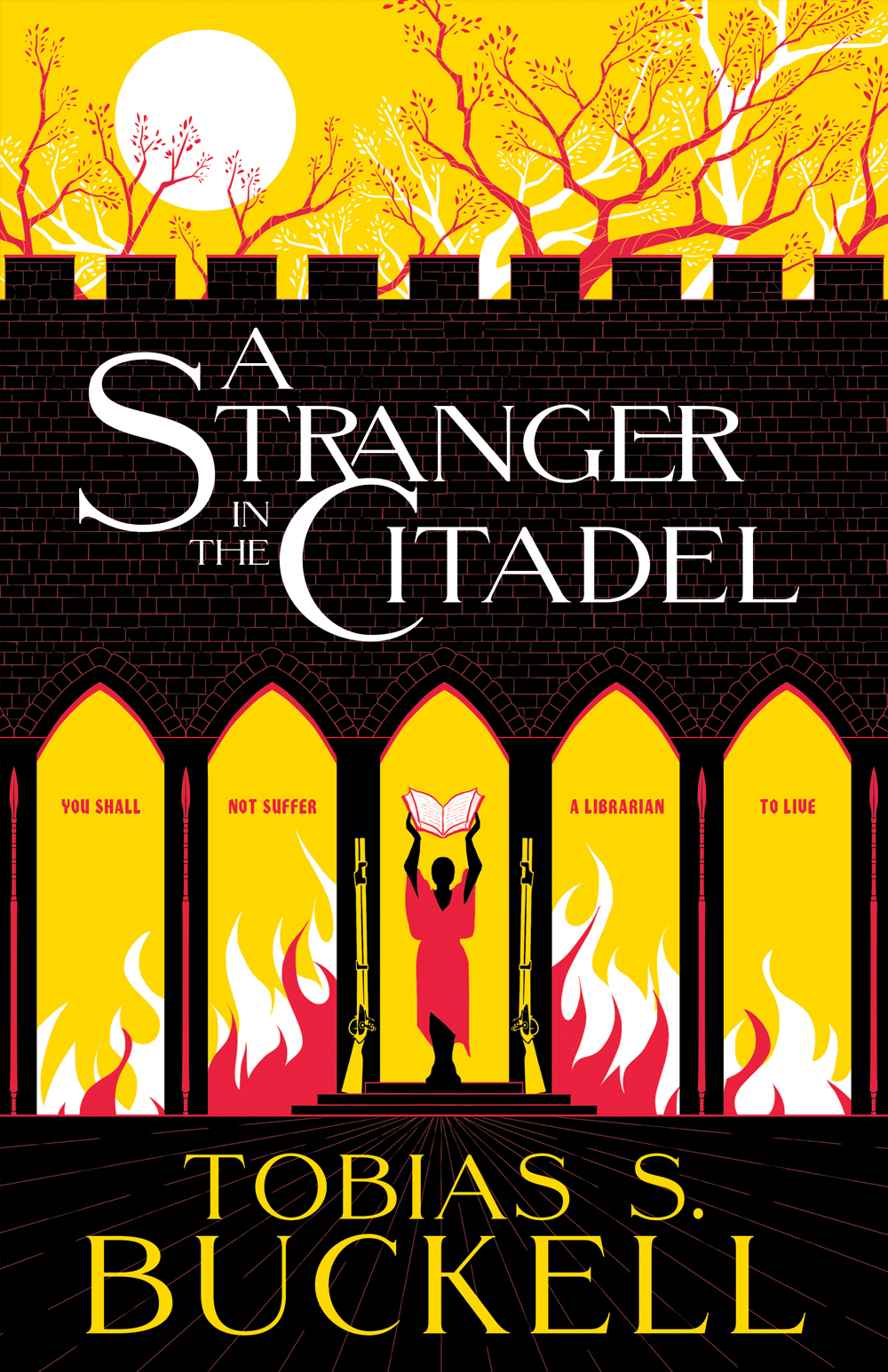
Tobias Buckell is joining us today to talk about his novel, The Stranger in the Citadel. Here’s the publisher’s description:
The life of the youngest musketress of Ninetha has been one of hard training. But Lilith’s days have also contained many pleasures, the royal privileges of her family’s guardianship of the Cornucopia, a mystical source of limitless bounty. Lilith has never seen a book, and she never expects to encounter one within the safety of the citadel.
When Ishmael, an outcast librarian, shows up outside the Afriq Gate, Lilith saves him from immediate execution by her father’s second-in-command, the zealot Kira. As Lilith’s curiosity draws her to Ishmael, she lets slip her family’s most dangerous secret to Kira, sparking a deadly rebellion and an unexpected journey full of stunning revelations.
What’s Tobias’ favorite bit?

Tobias S. Buckell
“Are you a pantser or a plotter?”
When you’re a writer you get asked a number of common questions about how you work. One of the more frequent ones that writers earlier in their journey want to know is whether you plan the novel ahead of time in detail (are you a plotter?) or make it up (some would suggest the word ‘discover’) as you go along (are you planning this book by the seat of your pants?).
I’ve also heard this difference described as “architects versus gardeners” which I like because it feels less judgy than “pantsing” and, my favorite, as “writing by the headlights, or with a map.”
A Stranger in the Citadel is the fifteenth novel I’ve written. At this point, with two decades under my belt, you’d think I have a good handle on this ‘writing’ thing, but there are always new challenges. Citadel’s grew out of that question posed in the first line. And it grew out of a dilemma I had with my second novel.
My second novel, Ragamuffin, kicked my ass. I wrote the first 20,000 words of that book at least five times. I’d hit the 20,000 word point and go back to look at the early chapters, realize how much improvement they needed, then just rip them all out to start over.
After writing well over 100,000 words of false starts I forced myself to write a whole book and promised myself to never fall into that horrible Groundhog Day cycle again. And to make good on that promise, I started heavily outlining my books. From books three to fifteen you best believe I showed up with my homework done ahead of time because I never wanted to write double the amount of words needed.
This approach grew to such an extent that by my fourteenth novel I wrote a 21,000 word planning document to prepare myself to write a 100,000 word book. “What’s the difference between a 21k outline and a short novel?” a friend asked me.
I had no answer to that.
In between my last few books, I’d been teaching writing at the graduate student level for the Stonecoast MFA in Popular Fiction, over at Southern Maine University. And one of the most frequent things I talk to students about is character agency. Writers who are architects, or plotters, can struggle with how to make their characters come fully alive on a scene by scene level, even while they have amazing agency or things to do in the overall story of the book. I began working to show students how the same tools of plot on the big picture scale of the book (I call it the 30,000 foot view of the plot) needed to deploy them on a chapter, and even scene, level.
It occurred to me that if this was true, then my answer to the question “what’s the difference between a 21,000 word outline and a short novel” is “there isn’t, it’s all the same act of creation and discovery.” It might all depend on framing! Because whether one uses those same tools to make things up as we go, or whether we use them to pre-plan, the act of discovery remains key.
While the outline allows one not to end up in a dead-end, I decided after thirteen books to take a swing at writing by my headlights again. I’d use a few rules to guide the character, but this fifteenth novel would be a risk: I’d write it like my second novel again.
Luckily, the core idea for the book came to me years ago and had been brewing in the back of my mind. A re-imagined religious verse (you shall not suffer a witch to live) became the opening line of the book (you shall not suffer a librarian to live), and I had a world that had formed up in the back of my mind. With that first line set, I leapt without a map into the world of A Stranger in the Citadel to find out what my main character would discover about the world she lived in. Would the city of Ninetha survive her curiosity about literacy when a librarian is captured outside the gates, in a world where the gods have banned books?
When I set out to write the book, I had no idea.
I’ve heard it said you never learn how to write novels, you just learn how to write this novel. For this novel, I leapt out of my comfort zone to write a novel by the seat of my pants. The turns and discoveries were, for the most part, as surprising to me as I hope they’ll be for you.
And it’s a reminder to me that there are no rules to this art. Just suggested byways, strategies, and ways of looking at things that may, or may not work for you. Being flexible and curious about the craft has always meant that, even as I change, I can always find new ways to let my books surprise and delight me.
I can only hope some of that delight carries on to the reader.
LINKS:
A Stranger in the Citadel book link
BIO:
Called “violent, poetic and compulsively readable” by Maclean’s, science-fiction author Tobias S. Buckell is a New York Times bestselling writer and World Fantasy Award winner. He is biracial, and was born in the Caribbean, grew up in Grenada, and spent time in the British and U.S. Virgin Islands. His Xenowealth series begins with Crystal Rain. Along with other stand-alone novels and his almost one hundred stories, Buckell’s works have been translated into twenty different languages, and he has been nominated for the Hugo and Nebula Awards. Buckell currently lives in Bluffton, Ohio, with his wife and two daughters. He’s online at www.TobiasBuckell.com.
